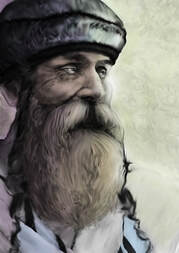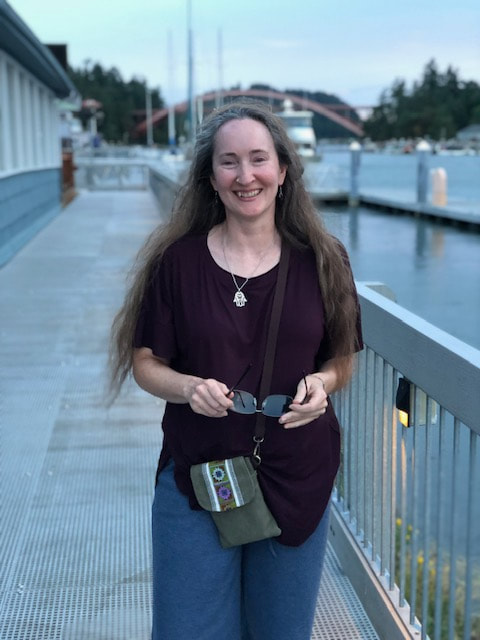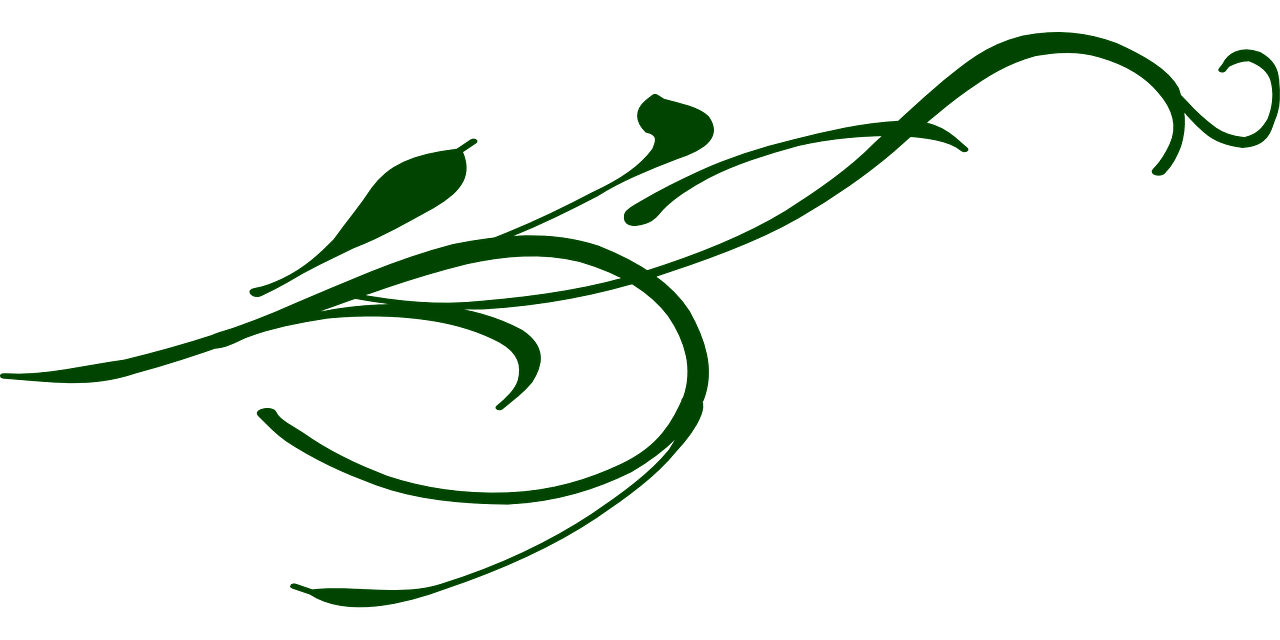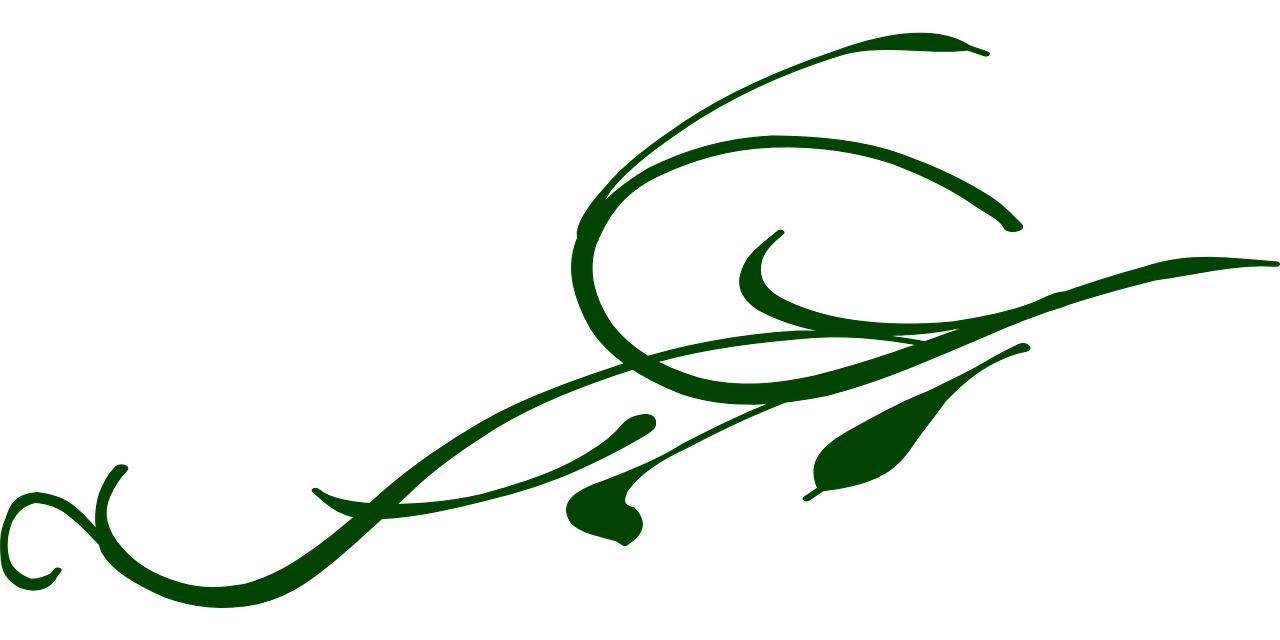 An intercessor’s life is peculiar. We require a lot of quiet and reflective time, praying, fasting, pushing aside things—sometimes important things—in a moment’s notice when the Holy Spirit prompts. We are dedicated, reliable, sensitive, sacrificial, and disciplined. Some of the requests, places in the spirit world the Lord wants us to stand-in-the-gap over, can be wild stuff. We are enabled to see through God’s eyes regarding particular details. Sometimes we get a glimpse of the fruit of our labors, oft times we don’t, but we do this thing called intercession anyway. I love my life of intercessory prayer because it’s more time spent with the Lord. The process heightens how we hear his voice; it expands how we depend on him. And it’s for the sake of others. Heart for God; heart for his people. But we’ve all had our struggles with the calling. The hardest part for me is finding balance… the fine line between being empathetic while you’re pouring yourself out over an assignment and investing in someone else’s spiritual journey, and remaining objective so that the process doesn’t consume you. Intercessors often operate under a sense of need to help others. It gets heated, intense sometimes, especially when coming against principalities and demonic warfare. It’s emotional. I am an all-or-nothing person. This makes me a committed and fervent prayer warrior; also, a basket-case when an assignment lifts or concludes, where I’m wandering about without aim or inspiration. We have to learn how to trust in between commitments, stay prayed up and not let our guard down, and be obedient in letting go. For it all belongs to the Lord, from the beginning to the end. Occasionally I’ve had assignments I wish I hadn’t, with awful warfare, and felt relieved to get through them. Yet the biggie for me more often is letting go. Because I still feel tied to circumstances and people I’ve prayed for, in a personal way—especially if it lasts for months or years. An example of this is when, not that long ago, a maritime assignment lifted. My spiritual obligation over this one lasted quite a while, and it was a journey, as some of you might already know. It began with the Holy Spirit alerting me to specific seaports, then ships and crewmembers. And I prayed over a whole gamut of conditions and seafarers (also floating church planting and port outreaches). Near the end of this task, the Holy Spirit would give me the name of a ship and where geographically it was positioned. Found these nifty little apps that can track ships, so discovering each of these named vessels was like a treasure hunt, and a joyous confirmation of the Lord’s lead. Each called out ship was exactly as the Lord said it was and where. He also gave me Words of Knowledge to understand what the vibe was on board, the spirits, the challenges, the sailors… and sometimes who might the Lord want covered in a specific way. I knew via the Holy Spirit when he gave me the name of the latest vessel, that it would be my last—at least within this format at this time. Understood that my prayer voyage here would lift at this ship’s next port. It was so very sweet when I discovered my last port of call would be Seattle. My hometown. I’ve lived in East Tennessee for so long it’s home to me now, too. But I grew up in Seattle. It’s still my home. I prayed, and watched via satellite in real time, as the tugboats came along and assisted this vessel into the Port of Seattle—arrived! It felt like a homecoming party. I celebrated. And these people, this crew, had no idea a crazy intercessor was praying for them, watching them, fasting on their behalf (or maybe they did, as the Lord told me there were firm believers on board). I always wonder, does somebody sense it when a prayer warrior across the oceans has gone up to bat for them? Fasting and praying, fighting and rejoicing? Probably many someone’s, as I’m not the only spiritual-crazy out there. But… then it was sad for me to let go. I felt invested in the task. I also stretch and grow during these times. The Lord takes me through a journey, asking if I’d do this or that, how much am I willing to commit, how far will I follow his lead? I also have to press in sometimes for clarity, just to understand if I’d heard God correctly. By the way, the Lord has a very special love for seafarers. They were his first choice as his disciples. Well, another commission came fast on the heels (stern) of that last ship. For the Lord clarified that many in my missionary/ministry circle were in or are walking into a new season. We are all in different seasons; rather, varying places within the same season I’m inclined to think. But it seems almost everybody I know has been in a series of whirlwinds to prepare, get ready, and launch or expand into something greater, different, or newer. I’ve been watching and interceding over these launches, committed to holding their arms up like Aaron to Moses and prayed as the Spirit guided. I get to pray often for those beginning new ministries—and I love that. While praying on the phone with somebody recently who was experiencing frustrating hindrances, I got a vision, and in fact had the same vision for a handful of people. We prayed it through, knocking down the demonic gatekeepers and obstacles, and asked for an angels’ charge to carry them onward. We received instant results. Thank you, victorious and glorious God! Now, many of those I know who are being sent have begun, are all set; at least for now. And I rejoiced. I also grieved. I spend much of my time uplifting others, interceding for others, watching them go, and celebrating with them. And I’ll be there for them when they need a supportive, praying sister. But sometimes, the lowly human in me gets caught up in the flurry and then feels left behind. I wish I was the one going. I wish I was commissioned to go out in the field. I’d had that calling once. Perceived God’s call into ministry when I was a young child. Later answered the call and went into full-time ministry through Christian performing arts and worldwide missions. I really enjoyed the field, thrived in challenging environments and all. It was a good fit for my fundamental nature of yearning to absorb adventure, travel, and that deep love for different peoples and cultures. I flubbed up when I stepped away from that path, when I never should have—and God didn’t ask me to. Rather, I didn’t seek him, just did my own thing. I’ve since come to terms with my decisions/mistakes that put a cement stop to all the “moving around” kind of ministry. Repented. Made good with serving the Lord in the best way that I can under my circumstances. I’ve sought his face, pursued his heart. I’ve been obedient. Have written a lot. Realized that I’d learned things I wouldn’t have had I not gone through the erring and wandering ways. Found humility in a place of despair, among a myriad of better things from a firmer Biblical perspective. The entire development has made me stronger. For that, I’m grateful. And I feel called again. Actually, I’m not sure the calling ever left… even if one walks away from it for a time (a long time) in life. For in Romans 11:29, it says, “For the gifts and the calling of God are irrevocable.” Irrevocable: “not able to be changed, reversed, or recovered; final” So, no, maybe I’m not picking up on somebody else’s radio frequencies. They’re my signals, intended for me. If the Almighty called me once, the call is still there. And stirring. One of these days, it will be my turn to go, to embark again on a very real-life, real-time, hands-on way, and he’s going to blow my mind when he does it. And instead of my saying with spiritual eyes, “He’s doing that thing over there.” It will be with both spiritual and natural eyes, “He’s doing this thing over here,” and I’ll be reporting about it from somewhere online. When my confession grows into my testimony. Last Thursday, another call-to-prayer over someone lifted. Right after, a cloud of oppression dropped over me. It was heavy, thick crud, and I couldn’t shake the rot off. And that’s just like the creepoid enemy; when the devil sees a vulnerability, he’ll seize the opportunity. Lasted for several hours. It was all I could do to listen to worship music and utter (even when I didn’t feel like it) “Thank you, Jesus.” Then the attack cleared with a snap (hey, maybe someone from afar was praying for me! Sure felt like I had help, and if so, thank you…) and I praised the Lord freely. But I did ask then of my savior, “Lord, what’s next for me?” And I didn’t mean a prayer assignment from my confined seat or closet. He gave me a vision. I saw a fortified, thick-beamed entranceway. I’d been in a dark space, and this large, bold door appeared. It was holy. I think it was already there, but it only just became visible to me. There were two tubular neon-ish lights, each distinct, yet wrapped around the door and pulsating together like the aurora borealis. I could also hear and feel the pulsating energy. The one in front was rich red, the one behind was sapphire blue; the thick frame between was white. So it appeared like a living triplet of stripes… two separate and distinct colors welded together and supported by this strong inner/middle white frame. Through to the other side, steps away, was bright, beaming, living light; fluctuating and revolving as if a hundred lighthouses of holy fire. It sliced darkness. Took my breath away, especially with the sense of purpose and joy that came with this powerful vision. I wanted more, to learn more. In one word, I asked him, “Lord?” And he gave me one word for now: “Apostolic.” And so there it is. You’ve heard it from me here. You’ll hear again from me from there. One day. Soon.  I love to laugh, but look for places where I can find comedy clean. Discovered a family-oriented channel on YouTube called Dry Bar Comedy. I enjoy countless comedians there who I don’t have to worry about dropping the f-bomb or telling off-color jokes… because the Lord has been taking me through a refining process. Convicting me of what I watch, listen to, read, etc. I’ve become more aware that I might be exposing my spirit to things, images, messages, sounds I probably shouldn’t. This is true for me, especially with music. I am swayed by music and I love certain bands, especially nu-metal bands, but the language, topics, veins, have come to the forefront. Holy Spirit is tapping me on the shoulder, saying, “maybe it’s time to clean this up.” It’s a bit painful, but I don’t want to leave any doors or windows open for the enemy to get a foot in or influence me in any way that is away from Jesus. Don’t want to saturate my spirit with anything but him and the renderings of people who also call him theirs (Christian metal bands, for instance). As I’ve scrutinized the things that I subject myself to, Dry Bar Comedy has made the cut. But even on Dry Bar Comedy, I’ve noticed an awful lot of deprecating comparisons between men and women. Maybe this has always been a go-to spiel for a lot of comedians; I’ve just grown more sensitive to the contrasts which also feel like judgements. Bits on the male/female relational differences occur often, and they’re making me uncomfortable. They have me wondering why men and women even hook up if they so viciously misunderstand each other. Then I heard someone (not on Dry Bar) the other day say, “If men didn’t need sex, and didn’t find women so rrrr” (insert tongue-rolling purr), “I don’t think men would hang out with women.” My jaw dropped. I shook my head and was like: Did you really just say that? I like motorcycles. They’re cool. I’ve ridden my own bikes; have maintained my endorsement since the 1990s. To be honest, though, I best enjoy riding in tandem. Haven’t in a long time, but that’s another story that will beg to be told one day. Anyway, I often have viewed riding in tandem, pillion, two-up, whichever term you prefer, as a light and lovely analogy of a male/female relationship. A dictionary term describes tandem as “two people or pieces of equipment that work together to achieve a result.” Here is where I envision the man's role as initiator, leader of church and family—and bikes (or trikes, which are way growing on me). A protector, provider, defender, driver. He’s a skilled rider, will assure safety to the best of his ability. And I see the woman’s role as supportive, affirming, responding. She’s a good passenger, balanced and upright. Wherever they go, the adventures they seek, the language (and prayer—spoken or unspoken) between the two, strives to be harmonious and kind, validating. To love and to cherish, to have and to hold. Together, they are on a mission to ride with purpose into the God-gifted horizon with the joy of freedom. Sounds nice, doesn’t it? The origin of the term tandem came from a two-seated carriage (1785) drawn by harnessed horses, one in front of the other, or alongside each other. Together, in partnership or conjunction. You hear of the occasional happy couple who have it all together; partners in conjunction who praise each other and are careful not to criticize. Kind of seems rarer these days. Have women turned to criticizing men, even their own partners, because of disappointment or rejection? And have men done the same? Are we so hurt that we can’t speak of the opposite sex as anything but complex trash? Is it really for the sake of a laugh when a comic throws his/her spouse under the bus? I don’t know, but lately I’ve been feeling how harmful this is—especially when gender roles are in crisis. With women trying to be men, and men trying to be women, or either treating the other like a burden, nuisance, or object. Maybe we just haven’t learned each other’s love language? When I flew back home to Washington State, where I grew up, to visit my sister, we had a lot of healing hikes and talks about ministry, life, and relationships. I love her so much; she’s my tribe—and hey, my tribe might be small, but it’s big in love and support. We all need that; we need at least one person who feeds into us encouraging words and vice versa. On a whim, for fun, she insisted I take a What is Your Love Language test that suggests what your most compatible/favorable expression/response is out of five possibilities. Turns out that my love language is Words of Affirmation. But of course it is! Word. I didn’t quite realize that about myself. *shrug* This helps, I guess, to understand some things in my life. I believe that men and women are disparate… unlike but not opposed. This is how I believe God intended it: two distinct parts, yet counterparts, genuine partners. Men are to be men in strength and leadership, and women are to be women in support and contribution. In tandem. A team. An alignment with each other because you’re aligned with the One Who Sits on the Throne before you. A relationship that says, “I get you,” and “I got you,” to your person. Whether it’s through Words of Affirmation, Quality Time, Physical Touch, Acts of Service, or Receiving Gifts, as outlined in the 5-love-languages test. It’s respect and a desire to understand the other’s role, mutuality, and with a level of authenticity that you don’t have with anyone else. To pray for and with each other, too—sounds like bliss! To focus on the good things within each other. And if that’s not what you’ve experienced or are living and receiving (believe me, I know about this), trust God. He can make a way—somehow, someway, someday—where there is no way (Isaiah 43:19). Live for the Lord, not for man. The world can do what it does at its best, the common tear-down, but that doesn’t mean you have to roll with it. Dare to roll on your very own in the name of Providence. Exhibit love, honor, respect, kind treatment, compassion one to the other, male or female, in our words and deeds. Work to say, “I get you,” and “I got you.” And if you don’t receive the same, or you truly don’t understand something, or no matter how hard you try, you remain severely incompatible, continue to seek the Lord, worship him, and pray unceasingly. Just this morning during my devotional time, a daily word from Prophet Russ reminded me of following the Lord through difficult circumstances, situations, or people: “Keep trusting. Stay sweet in your soul. Refuse to become bitter or contentious.” Not always easy, but possible. Yeshua has got to be first in everything, the number one. He can heal and transform; he can and may also realign you with other people who are better suited teammates, helpers and supporters. Next time I watch Dry Bar Comedy, if a comic starts ragging their spouse or the typical men vs women gig (the historical definition of gig is “a light two-wheeled carriage pulled by one [lonely] horse.” Just sayin’), I’m turning it off and walking away. Listening to that negative material doesn’t do me any good. My love language actually begins with Creator, the creator of man and woman—all of whom he loves. His words are nothing but affirming. Living in tandem with the lover of my soul, Tessa  The Lord has taken me through a heavy process lately, comprising three topics. Topic one: Tying up loose ends. Part of this is following through with written works I’d finished or have partially completed in the past and to get them released (another book is coming out in the next few days). I’m tidying up and getting rid of the excess of things of which I have full ownership. An urge has come over me, that if it’s not nailed down, or if it’s surplus to my daily needs/use, it’s gone (not including books or art). This act has hogged my spiritual life as well. I noticed that occasionally a recollection of something I’d said or done in the past—sometimes years past—that I wish I hadn’t would pop into my head. It’d make me cringe with shame or embarrassment, and I’d push it down, away, and go about my business. Out of sight, out of mind means gone, right? Not really. Because it was still there and would keep resurfacing until I dealt with it. The Holy Spirit was bringing it up and again because I needed to repent. I had loose ends needing tied; unfinished business to address, excess to purge. So it came to a place that whenever a cringeworthy memory struck a nerve, I would say, “Oh gosh, Lord, I’m so sorry. Please forgive me. Thank you, my redeemer, for who you are, for forgiving my sin. And now I ask that you forever remove that sin, along with the shame and embarrassment in the memory of it, and throw it all into the sea of forgetfulness. With your holy blood covering, it will never haunt me again. Gone! In Jesus’ mighty name!” I can almost hear a set of hands brushing together after handling something dirty. This was happening a lot, because it was a shedding process. Layers removed that freed me from not just the big things, but itty-bitty things that I had no idea that what I’d flippantly said about this thing, or had done, grieved the Holy Spirit. I wanted to be free of it all. I asked God to do a work in me. If it took an overhaul, go right ahead. I asked for it. Because I wanted less of me and more of him. I want to move forward in his kingdom. So stuff was coming up a lot. I had to make room. Over two specific nights, all night long, I was in what I like to call the “half-state”. This is that place between wakefulness and sleep. To an observer, you’re asleep and aren’t moving, yet your level of awareness is sharp. You can try to call out, but your body doesn’t respond. It used to be the place where demons would torment me; now it’s the place where Yeshua sits with me, and I listen (or I pray while wrestling snakes off of people—but that’s another story or more). Anyway, during these two nights, the Lord sat with me while in the half-state and he brought up one thing after another, and I was in a constant place of repentance for every single thing he wanted me to address. One might think this would be dreadful, and expect to wake up exhausted and feeling terrible. But this was not so. The Lord is so gentle, and kind, and loving, and merciful. As soon as a memory of something came to my conscience, the moment dread filled me over an issue or incident, the Holy Spirit was right there, instantaneously removing it and filling that void with volumes of his holy love and forgiveness—to overflowing! It was both a shedding process and a filling up of the goodness of God. I woke up refreshed and high on the buoyancy of joy! He is so good. Topic two: Making amends. To be free in the Lord is not necessarily to be free in circumstances if you are in a situation that’s choking, difficult, or proves a constant trial. While I believe that if the Lord said to you he’s going to do a thing, deliver you from said situation, then he will. He fulfills his promises. He can change a nation’s position and outlook and deliver. Just look at how he delivered the Israelites from Pharoah. He can do the same for you, because don’t we all have pharaohs in our lives? But what if he hasn’t delivered yet? Or he has and yet you wander the desert for forty years before you are able to cross over to the promised land? Do we hold on to resentment, complain, or keep a string of bitterness in our hearts? Maybe we’ve done a pretty good job forgiving others who have done us wrong, such as a pharaoh in life, yet it’s a constant battle, a daily struggle to push down resentment, or keep bitterness from growing, and it lashes out sometimes. I think of people such as Corrie ten Boom, or Eva Mozes Kor, who had a lot to forgive, having been under the cruel hands and unthinkable conditions during the holocaust. They came to a place of peace, healing, love, and genuine forgiveness toward their perpetrators. My parents were stunning examples to me of having lived under unfair, unjust, cruel conditions, and not allowing it to fester or deepen. They shucked the damage as they could, allowing Yeshua to do his will to help and keep them. Their love and forgiveness toward those who hurt them was a great example for me. Damage is not irreparable. God can take it all and put something remarkable and beautiful in its place. AND YET, I’ve had my own difficulties with coming to forgive the persecutor or pharaoh, if you will, in my life. I’ve exhibited anger and frustration. But my desire is to have a supple, mendable heart with which the Lord can use to help others. So I strive to make amends. And the Lord has been bringing things and people to my awareness that/who I have needed to make amends with. We aren’t to push down resentment (hidden but not gone), but to give it over; release it for good. Which leads me to the next topic. Topic three: Cutting the line. Last night I had a dream where a pharaoh in my life sat on the ground and said, “I owe you an apology. I’m sorry for ___________.” And the blank was filled with an entire issue, a disappointment that has hurt me, that has held me back; had become a hindrance without my understanding that it was a hindrance. I thought I’d forgiven, yet here it was before me last night. And I said, “That makes all the difference. I forgive you.” And it wasn’t that the pharaoh in the situation (for lack of a better way to call this) in waking life had apologized or ever would. I realized you can’t expect apologies from people even if they’re deserved. Again, look at survivors of genocide who have found the path of freedom to forgive. We can’t control or change people (or the spirits within or beasts that drive them). We can pray, but their conviction comes only from the Holy Spirit. We are accountable for our own reaction, our response. In my dream, Yeshua, the Waymaker, became the one sitting on the ground. Not the one who apologized, but the One who now sat in pharaoh’s place, so to speak, and said, “Will you forgive? Will you do this for me?” And this is when I said “Yes.” The Lord made all the difference. And when I forgave, I saw in my spirit what was like a blimp or a hot-air balloon. It had been tethered down. And all the tethers had been released, except for one. The airship was so buoyant and ready to fly, but this caused that one remaining line to get so taut, pressure so tense, that it couldn’t be released. There was no give or slack in order to do so. I had to sever the last line in order to let the thing fly. Cut the line, the remaining little or big thing you hang onto, that you think you need to keep because someone’s hurt you and owes you an apology, or you have a single strand of resentment or bitterness hidden deep in your heart. May your prayer be, “Search me, O God, and know my heart! Try me and know my thoughts! And see if there be any grievous way in me, and lead me in the way everlasting!” (Psalm 139:23-24) Cut that line, and fly the way you’re meant to fly. Weighty topics for sure. Yet the love language from the Lord has been sweet. A few incidents I felt compelled to share, and so I wrote updates at the end of a couple of blog posts I did last month (June 10 and June 15) because they’re connected. Check them out if you have a chance. https://www.tessastockton.com/blogette/somewhere-between https://www.tessastockton.com/blogette/somewhere-within Peace 🕊️  Seldom mentioned, the book not often read, you might find Jude making the top-ten list for the least popular books of the Bible. More of a letter, Jude’s inspired words tend to stay hidden. Perhaps this is because it’s found before the last humdinger, Book of Revelation. The end times prophecies enthrall many people. The book of Jude, though, is no less significant. In fact, it’s a pertinent call-to-action before the end, and so relevant for right now. The other morning when I’d asked the Holy Spirit which scripture he’d like me to read, he told me, “Jude, Chapter 1.” This gave me a chuckle, because Jude has only one chapter. Way to be specific! Anyway, I’ve been soaking in the words since. Jude paints an unattractive picture of the faithless, disobedient, and wicked. By providing three examples in his past, he gives an unpleasant warning to the people of his present. In our reading his words from roughly A.D. 66-80, he’s providing a message for OUR today. Jude admonishes us to take heed of those who would say forgiveness allows us to live immoral lives. When we seek personal gratification and/or allow the opinion and persuasion of mankind and influence of mainstream to dictate over the opinion, persuasion and influence of God. Woe to those who would succumb to accommodating, allowing and accepting certain patterns and pressures, and compromising the faith by celebrating certain things or movements that, well, shouldn’t be. Not if we’re to uphold the truth. He reminds us of Egypt, when God rescued the nation of Israel, but destroyed those who didn’t remain faithful; fallen angels, who rebelled against God’s authority and were ousted into prisons of darkness until the day of judgment; Sodom and Gomorrah, destroyed for its practice of sodomy and other acts of sexual immorality, perversion—and what our unchanging God still calls unnatural and wicked. Jude also gives examples of woe for like that in Cain, who killed his brother; Balaam, doing anything for money; and Korah, rebelling against God-appointed leaders. The idea of forgiveness, even in some of the church today, has seeped in with a faux glittery package that says we can identify as and be whoever we want and live however we want and God loves us no matter what. Aren’t we special! Well, yes, God loves us. But he loves us so much, he calls us out of sin. Because our society, and the prevalent way of thinking, is wrong, about a lot of stuff, when compared to the Bible. Forgiveness first means repentance. Sincere regret, when we call on God our Father, is replaced with mercy and compassion (because we are special, the apple of his eye). And we’re in the fold, into his kingdom, just like that. So very simple, because Christ bore our sins and grace is a gift that reaches the deepest depths for us. True repentance gifts us with eternal life. What’s most humanly difficult is wading through the gravity of our centuries of pervasive sin. We (mankind through Adam and Eve) had it pretty good once. God created this perfect paradise in the Garden of Eden, and we had freedom and wholeness from sickness, disease, destruction, confusion, chaos, hatred, dissension, division, yada yada yada. Most of all, we had the privilege and pleasure of being in constant, beautiful, fluid communion with the One who created us! We had peace and unequivocal acceptance. By our choice, through temptation that has since wreaked havoc on our souls, man fell away from God, separated and banned from the Garden. Now here we are today, born into that same sin, feeling like gravity, difficult to wade through the effects on our bodies and psyches… but not impossible. Because of God’s love for us, and his great patience, waiting and hoping, and reaching, and extending the ultimate sole path (Jesus) for us to rejoin him. What’s distinct is the favor and knowledge of God. What’s key is our everlasting survival. We are to protect the truth of the Gospel against a culture that would seek to twist, corrupt, or compromise the truth in the name of tolerance or acceptance. Indeed, with a heart of compassion, we are to reach out to our brothers and sisters and help hurting people, whether it be from abuse, identity crisis, rejection, perversion, prostitution, slavery, addiction—literally everything. But none of us are meant to stay where we are. We’re to come out of sin and away from a lifestyle of sin. And to support each other out of it. Our identity is in Christ alone. We reject whatever is keeping us from being holy—for we are called to be holy. The world is dark and getting darker. He’s calling us higher, closer; to be a beacon on a hill, a lighthouse in the night season, to spend more time in his presence. It takes a daily renewal and commitment. Jude’s message today would be unacceptable in many circles of our current culture. If he were living right now among us, he’d be called something like a hater, rude, or intolerant. But what he does in a 25-verse chapter is admonish those in the faith to fight for the faith. For the love of his neighbors, for the love of God, he takes a sad song and makes it better. We’re to study The Word, build each other up, pray in the Holy Spirit—not asking for selfish gain but to know him better. And if you don’t know how to do that, how to listen and hear from God, how to even start… It’s sort of like learning a foreign language. You’ve been given the free-kit or app, so to speak. When you first start studying a language, little makes sense. But as you listen, read, practice, spend time in it… the more you immerse yourself in it, the more you understand, the more fluent you become. Be fluent in the Gospel. The Word of God is where you find the only pure and unadulterated truth; and unblemished and perfect love. Little known Jude packs a punch, but it is Good News. Why not start there? And from there, perhaps, Psalm 32 (The Joy of Forgiveness). With love, Tessa  It was testimony-night at the small church. The roster of individuals who wanted to share grew as the evening progressed. Testimonies such as an addict who’d overcome his addiction overnight and has now remained drug free for over five years. A woman diagnosed with a brain tumor the size of a golf ball went in for more testing when the doctors, without medical explanation, discovered the tumor had disappeared. The reuniting of a praying parent and a prodigal child who found the Lord. Profound testimonies to the glory of God! And then there were these demonstrations, the ones that confounded me. Their surrender to the Lord brought tears. An act of love, of letting go of their own desires. Of saying, “Not my will, but thine Lord Jesus!” A man in a wheelchair who the Lord spoke to promising he’d walk again. Twelve years had passed since the accident, and yet he still rolled rather than walked. The Lord helped him through discouragement and taught him how to wait with patience and hope. He has peace in the waiting. A woman who had a slew of afflictions, one after the other, and toxic relationships, and she’d learned to manage her life better and make better choices with diet and lifestyle. She witnessed you can’t always control every circumstance or even people, but you can control your response or reaction. Be faithful in the things you can control, beginning with the choices you can make right now. Another woman presented like a modern-day Job. Her house flooded, then it burned down; she lost her job, got divorced from an abusive man, went bankrupt, survived cancer, lost one of her children... What could she possibly be grateful for? And yet she was exuberant with divine joy. The one most memorable for me was of a middle-aged man who’d lived a hard and promiscuous life. He’d contracted an STD and learned to live with it (also to speak frankly about it, which took admirable courage). Had once known the Lord, but wandered astray through temptations of the flesh in a hard-to-flee-from environment. When he returned and got anchored in the faith, he’d begged God to heal him of his disease so he could marry a godly woman. He determined he couldn’t marry until God healed him, as he wanted to present himself to the woman God had for him without the shame he carried, explaining that each flare-up was like a knife-stab reminder of the poor choices of his past. He also didn’t want to pass that on. God hadn’t healed him, and yet there he was, standing side-by-side with a godly woman, his wife, her hand on his arm. She was a pure soul. Hadn’t had the background or experience he’d had; truly an innocent. Yet there she was, devoted, adoring, selfless to him. She knew of his condition, of the risks, and she married him anyway. For the Lord called her—called them together. In fact, they were moving into full-time ministry together. Some might hear that, and if they were in her shoes, think, “Ew, not for me.” But I was really struck by the beauty of it. Still am. So many distinct stories, conditions, situations and outcomes, and yet one common theme ran among all of them. Gratefulness for what he’s done. He forgives our sins, makes us citizens of Heaven, giving us our true home, of belonging, unconditional love, a future, a destiny, a purpose. Sometimes he heals us; sometimes he promises to heal us and waits with us until that perfectly timed fruition, and sometimes he chooses not to heal us. And when it’s the latter, he helps us to manage our lives in him—and also can still bring us unexpected blessings from Heaven. He moves often in ways we haven’t considered. Keeps us surprised and delighted. The point is, he’s always there. When we can lay everything down, let go of our own wishes and expectations, and press in to him… that’s when he fills us and makes us whole. When our spirits are whole, we are whole… no matter what our bodies or circumstances are doing. I love a good story of healing or deliverance. But I admit, it’s that last one, where healing wasn’t necessarily a physical one, yet the love and devotion demonstrated through that couple’s testimony, their marriage and ministry-calling is the one that moved me to write this blog post. Baruch HaShem |
Tessais a storyteller, and a transcript editor. She's also a Romans 8:28 kind of Jewish girl ... For Tessa's new
|





 RSS Feed
RSS Feed